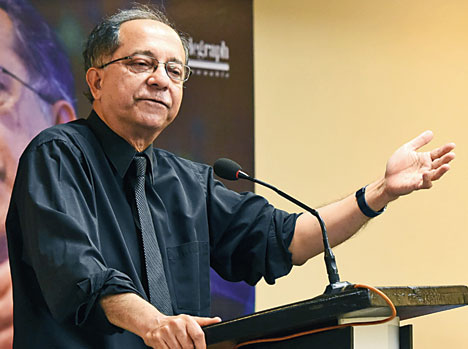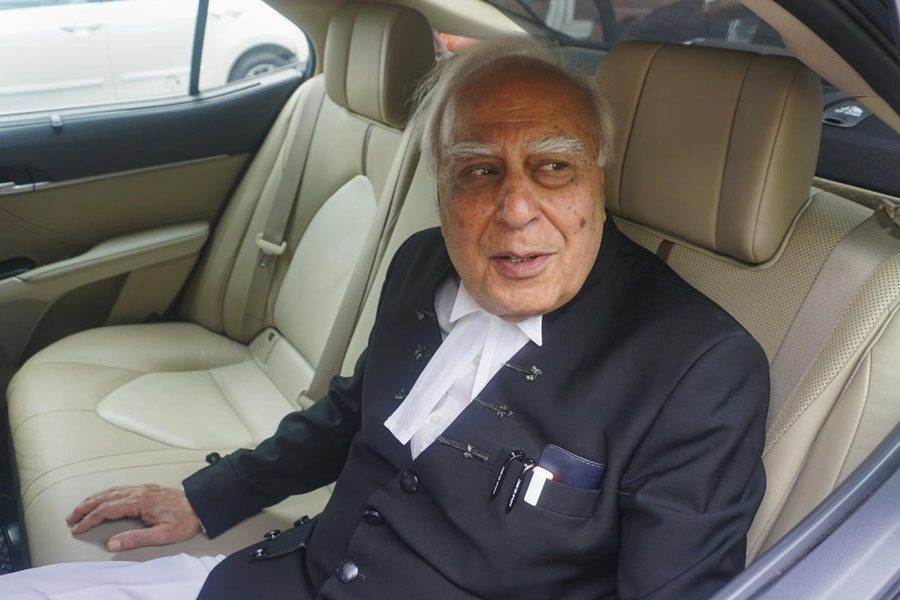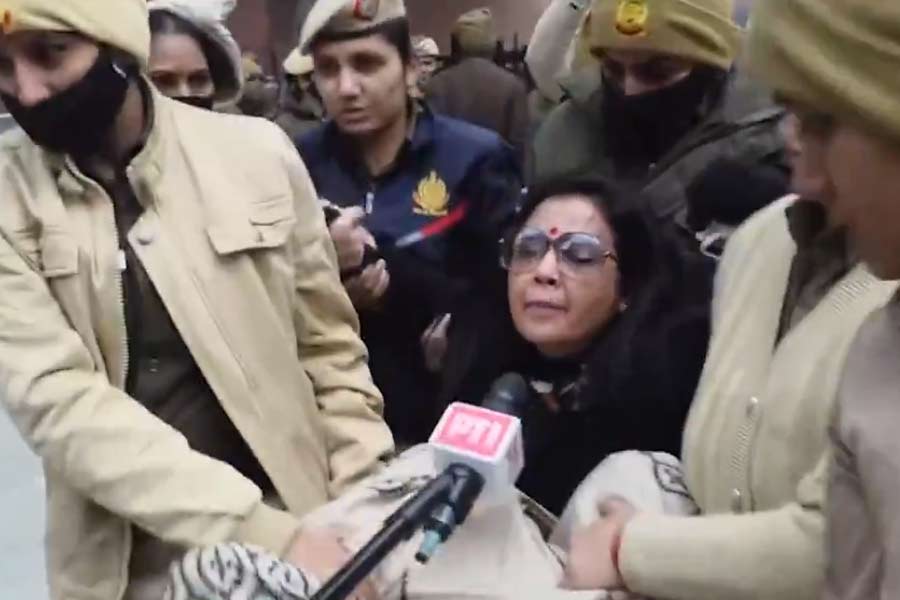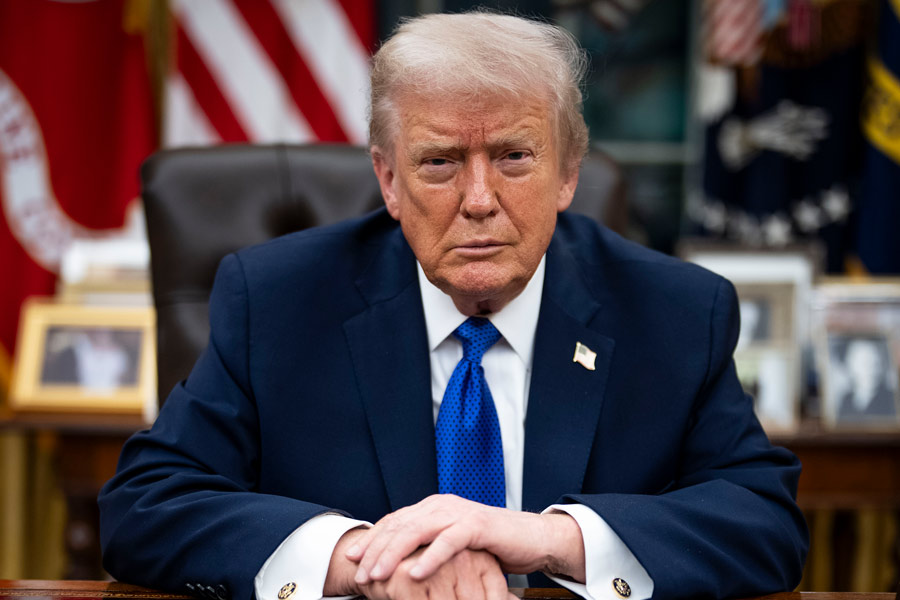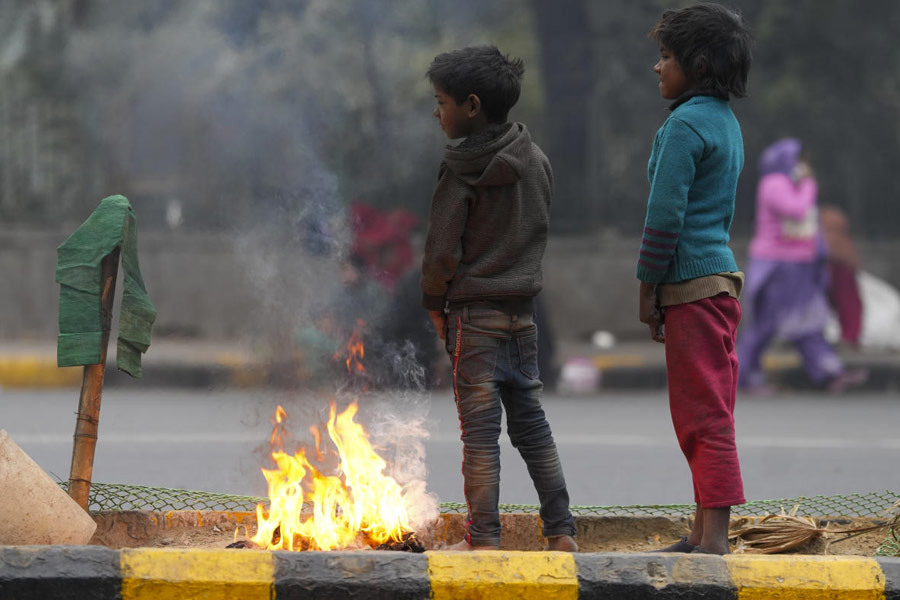
Calcutta: Kaushik Basu, former chief economic advisor to the Union finance ministry, analysed on Thursday the story of India's growth and highlighted some vital challenges the country needs to address for the growth to take off.
The Professor of Economics and the C. Marks Professor of International Studies at Cornell University divided independent India's growth story in three phases - 1947-1975, 1975-1991 and 1991 to the present - before underscoring the challenges of education, corruption and technology.
The former senior vice-president and chief economist of the World Bank - who delivered the Bengal Club Library Talk in association with The Telegraph - believes India is in a stage where it can go "sprinting ahead", should it be able to address the challenges.

Excerpts from Basu's address and his interaction with the audience:
Education: I worry that India is beginning to trail.... We need to improve education, because in the long run, basic work is going to be taken away by machines. It's the more creative work that will remain with us human beings. India had an initial advantage of that creativity. But creativity needs space and freedom, that we had. We must hold on to that, it must be nurtured.
If you look at world rankings of universities, shockingly barren area. I think one Indian institute comes up in the top 200, and it's not like it's all US and UK, China's now in there, Malaysia's in there, there are countries that have now come in.... Higher education, historically - in the sixties, the seventies - was very good, when the IITs were coming up, the IIMs were coming up.
If you look at the US universities, if you look at students, China is dominating India.... But if you look at professor presence, Indians are way bigger.... This must be the earlier education. Why has India begun trailing? My view over here is that in higher education, you cannot have a flat system of 700 universities of roughly the same level. I would like it if the world were like that, flatten out everything, same salaries, same everything for 700 universities, and the world is perfect. But the world is not like that. The US broke that.
I think given the way the world is, if you want to win over the best, you need to give space, for that the fees need to rise, but you have to protect the good students. The US does that very well. If it's a fantastic student, no matter how good the university, it will go after that student and pick up that student, give scholarships and everything, because you want the university's ratings to rise. But then, for the other kids, they will charge massive fees, because they are coming in with money, to get the money out of them. We will probably have to move towards this practice of discrimination.
You can't run a country with 700 top-class universities. You will have to be prepared that 680 of those universities will be teaching shops, reasonably good, solid teaching. Twenty others will be research universities. People doing cutting-edge research, you give them space, research funding, support, etc. I think India will take off.
Corruption: Extremely important for India is corruption and we do need to engage with corruption. Not just by showing backbone and immediately making a move. Demonetisation was a move against corruption, but it has done nothing. I will say there is hope.... I feel you do need leadership that sets that example, you do need a lot of intelligent thinking, about how to regulate....
For the short-run (eradication of corruption), there was one suggestion I had made when I was in the government of India, which I think is a good suggestion.... A particular kind of corruption I was interested in is harassment bribe, being asked for a bribe for something that is not illegal. You have passed your driving test, you drove perfectly, but the driving test person asks for money for facilitating the licence. You have filed your tax returns properly, the tax person comes and says here's that cheque, give me some money and I will give it to you. I have had that experience, before I joined the government.
In India, there is something called the Prevention of Corruption Act, 1988.... By that law, giving of a bribe and taking of a bribe are equally punishable.... If you have a law that states the giving and the taking are equally criminal, as an ordinary citizen who has given a bribe, I will collude with the person who has taken the bribe to keep it a secret, because both of us will go to jail.
The bribe-taker knows that after giving the bribe, I will not report it, making it more easy. Change the law, and say that the ordinary citizen forced to pay a bribe for pure harassment is non-criminal, you are allowed to do that. The taking of the bribe, double up the punishment for that. You will not get that collaboration between the bribe-giver and the bribe-taker.... That was a suggestion I had made, which had caused an absolute furore.
For end of corruption there is also a moral element.... One of the reasons why the Scandinavian society was able to minimise corruption was collective morality. There are codes of collective behaviour that spread to Japan, to Korea.
Technology: The world is going to face a problem with technology. Technological progress, digital technology, is going to cause the demand for labour to go down.... All the rich countries and the upper middle income countries' - US, UK, European Union, China, Turkey - share of the national income going to workers as wages going down steadily.... Workers are getting alarmed, they don't quite know what's happening, but their share is going down.
Two technological innovations are causing this, one - which affects all of us - is labour-saving technology. But there's something else, which actually creates an opportunity for countries like India for a while, labour-linking technology. New technology means you don't have to migrate to another country to work for their company and sell products. You can sit in Bangalore and do it, you can sit in Calcutta and do it.
India, fortunately, is digitally well connected and can do well out of this.... There is need for a lot of radical thinking about these opportunities.

